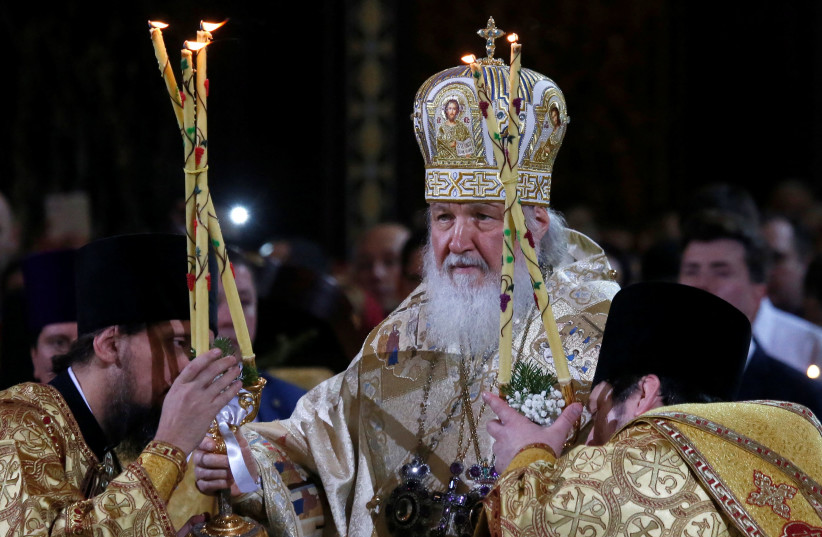A new museum dedicated to the "History of the Russian Presence in the Holy Land" opened on Sunday at the Mission of Saint Sergius of Jerusalem building near the Russian Compound in downtown Jerusalem amid a pro-Ukrainian protest, Russian and Ukrainian media reported.
The museum's inauguration coincided with both Russia Day and the 140th anniversary of the Imperial Palestinian Orthodox Society (IOPS) which was founded in 1882 to promote Russian Orthodox pilgrimages to the city.
The opening ceremony, which was led by Russian Ambassador to Israel Anatoly Viktorov, was supposed to include the uncovering of a new plaque at the entrance to the building, but the uncovering was disrupted by a number of pro-Ukrainian protesters carrying signs with anti-Russian slogans and shouting "Glory to Ukraine," according to the Ukrainian news agency Interfax.
The protesters managed to prevent the ambassador from revealing the plaque and he left the scene without doing so, one wrote on Facebook.
The museum tells the story of the Russian pilgrims in the late 19th and early 20th century and includes documents from the IOPS archives along with authentic items of pilgrims, books, photographs and more, according to a Russian state media report.
The building, known as Sergei's Courtyard, sits immediately outside of the Russian Compound and is named for and dominated by a large guest house constructed in 1890 for aristocratic pilgrims by grand duke Sergei Alexandrovich, then president of the society. Sergei was the son of Tsar Alexander II, brother of the infamous Tsar Alexander III and uncle of the last tsar, Nicholas II.

History of Sergei's Courtyard
The courtyard was chartered by the Russians from the Ottomans in 1858 to be used for the pilgrims until World War I, when the lot was confiscated by the Turks. After the war, the British Mandate requisitioned the courtyard and used it as a police station, jail and government building, as well as maintaining an ongoing Russian Orthodox presence. The building came into Israel's control after independence in 1948 and became home to Israel's Ministry of Agriculture.
In 1964, following a protracted legal negotiation between Israel and the Soviet government, Jerusalem purchased most of the Russian Compound from the Red Church for $4.5 million, two-thirds of which was paid with oranges in what became known as the "Oranges Deal."
But the status of Sergei's Courtyard continued to face legal challenges until 2008, when then-prime minister Ehud Olmert officially handed it over to the Russian Federation, reportedly in return for the Russians denying Iran then equilibrium-upsetting S-300 ground-to-air missiles.
The handover of the courtyard was completed in 2012, and underwent an extensive renovation until July 2017.
